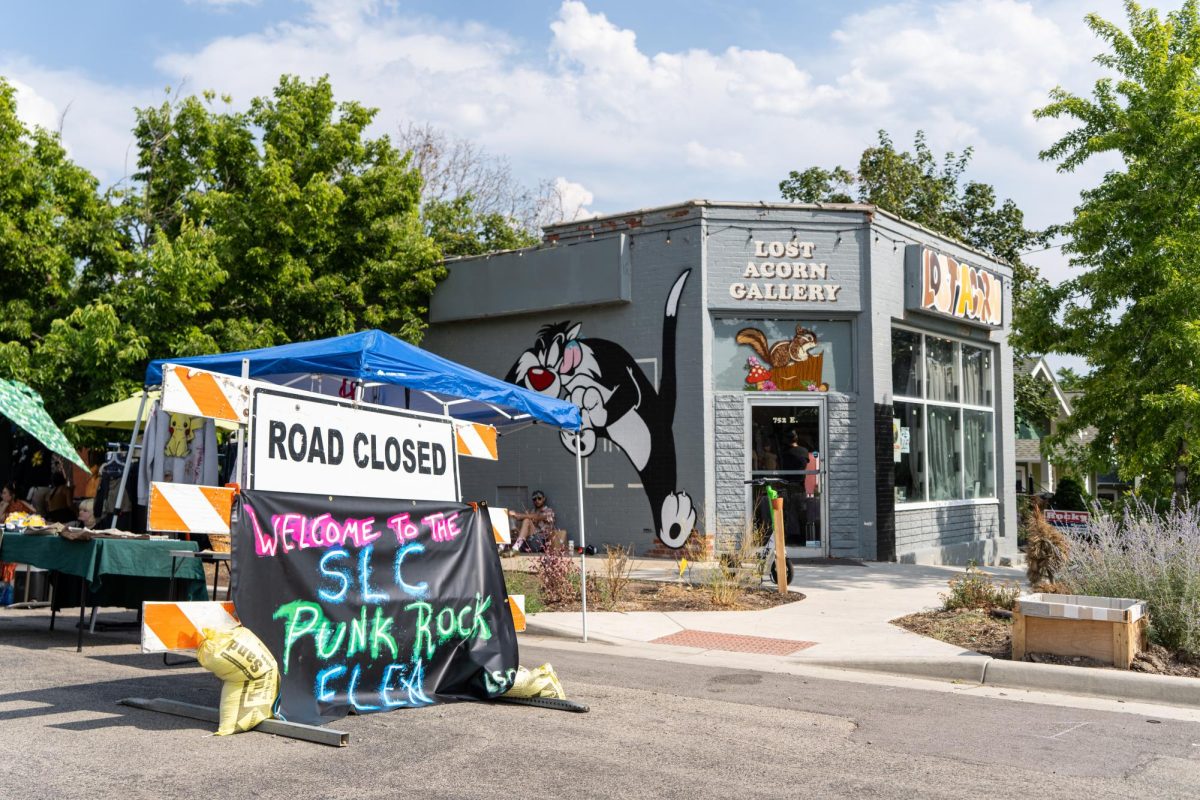Generation Z men are more conservative than ever before. This creates a political gender gap; Gen Z women are currently the most progressive political demographic. Young men seek solutions to their political angst and general loneliness in all the wrong places.
Many find imagined community and solidarity within the insidious alt-right world characterized by racist podcasts and fascist political rhetoric. If rivaled by a punk resurgence, this alt-right pipeline would be replaced by genuine anti-establishment views that criticize racism, sexism, consumerism and war.
The Conservative Male Problem
Historically, younger generations lean further left than their predecessors.
This trend is logical. Progressiveness is based on visions of the future whereas conservatism is grounded in traditions of the past.
However, one demographic has broken this well-known paradigm. Gen Z men are overwhelmingly right-wing. This is not accidental — the Trump campaign targeted this demographic through appearances on podcasts almost exclusively consumed by Gen Z men, such as Adin Ross and This Past Weekend with Theo Von.
Pre-November 5th, engaging in interviews with Twitch Streamers and TikTok comedians known for “brain rot” memes and inflammatory online outbursts made Trump seem desperate.
But Trump’s popular vote win proved this alt-right internet media tour effective. The convicted felon wedged a dramatic political gender gap in Gen Z, recording a 51-point difference between young men and women in swing states.
I spoke with Cameron Mclaughlin, a Gen Z man involved in the local punk scene.
“Something needs to be done about the algorithm-driven echo chamber of social media that puts a barrier between the younger generation and empathy,” he said.
Women Persevere and Excel Despite Subjugation
This gender gap becomes even more pertinent when considering young women’s political beliefs. Gen Z women are the most progressive group in American history, outpacing men in political involvement and education for the first time since the 1970s.
Yet Gen Z is the only generation where American women have less rights than their mothers and grandmothers. Trump’s election solidified an ongoing misogynistic upsurgence.
Mclaughlin said that “Men are drawn to the alt-right because many highly conservative notions play into systems that idealize the male as the most important or most powerful.”
Instead of finally seeing a female president in 2024, a man with a recorded history of atrocious violent acts against women triumphed. The resurgence of male conservatism endangers women — Gen Z is seemingly dominated by men unashamed to vote away women’s rights in favor of a rapist candidate.
Cultural Solutions to Cultural Problems
These issues are not isolated. They are the embodiment of our modern zeitgeist. The young male Trump vote represents a cultural shift that threatens all marginalized groups.
Men’s psychology experts say young men’s shift to the right can be explained by the demographic’s tendency to support counter-cultural figures with edgy and rebellious reputations. The far-right has flipped the narrative, classifying themselves as the alternative, anti-institution party. This is counterintuitive trickery. Their traditional conservative values much more closely align with mainstream institutional interests.
This cultural problem requires a cultural solution. An artistic movement is one potential strategy to reclaim this alternative space.
In the past, politically unsatisfied young men created anti-establishment art instead of malignant podcasts. The punk movement arose in the late 1970s, fueled by cultural angst due to economic crisis and unpopular wars. These factors reflect much of our political environment today.
“The punk and hardcore scenes gave me a place to let that out in a beautiful way,” Mclaughlin said. “I was surrounded by other people who were angry at the world for trying to put them in a box in some way or another.”
Punk is more than just a music genre or way of dressing. It is a cultural revolution composed of an entire pathos. Well-defined and vindictive political values are essential to the movement. These include an emphasis on individual freedom, non-conformity, free thought and equality.
“People don’t understand what punk is about,” McLaughlin added. “It’s not about spiked leather jackets, dyed hair and a look. It’s about anarchy and rejecting conformity.”
Punks are also stubbornly anti-war, anti-racism, anti-establishment and anti-consumerism. They do not support the police or trust the government but adamantly promote political activity nonetheless. The punk movement also rejects classism by promoting sustainable DIY fashion, mutual aid and wealth redistribution. Additionally, punk culture is unwaveringly accepting of queer and trans people.
Punk came to popularity as an alternative to the overly positive, pacifist hippie movement. Many aspects of the 70s hippie movement are reflected in the modern democratic party, which is often criticized for similar utopian viewpoints and elitist biases.
Punk was popular with young men, who channeled their feelings of political isolation into music and style propelled by leftist beliefs. It formed a powerful community that remedied loneliness and gave youth a productive direction while retaining rebellious appeal.
Today, young men find this community in the ranks of misogynistic podcasts that lead them towards the alt-right, transforming their angst into cruelty and amplifying their loneliness.
If rivaled by a punk resurgence, this angst would instead be transformed into true anti-institutionalism; empathetic and productive rather than fascist and cruel.
“[The] punk movement can be generally appealing to anyone upset with the current state of the increasingly disingenuous capitalist environment we live in,” McLaughlin said. “For anyone who wants a safe space or anyone who is looking to go against the status quo.”
This conservative dilemma is a cultural problem extending beyond singular politicians or red swing states. Promoting leftist scenes is crucial — these movements can radicalize entire generations.
The punk subculture is not negative, nihilistic or resentful. It is a space where young people grow without judgment and experiment with identity, sexuality, music and style.
McLaughlin said, “The scene is there and open and never tolerant of hate or bigotry.”
Where the online “manosphere” is limiting and oppressive, the punk subculture is broad and supportive. A resurgence of the movement is a step away from the toxic masculinity that plagues young conservatives and ingrains hatred in the hearts of our future leaders.




